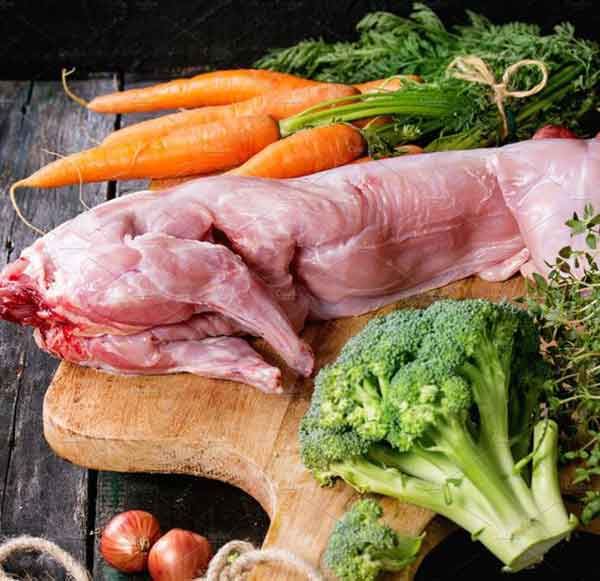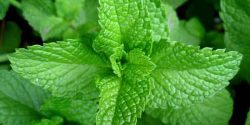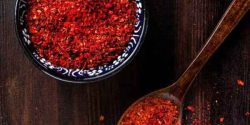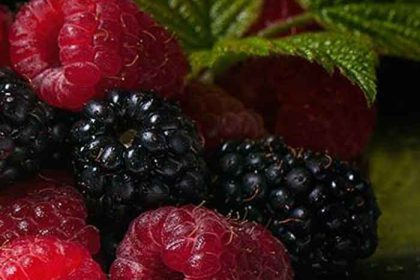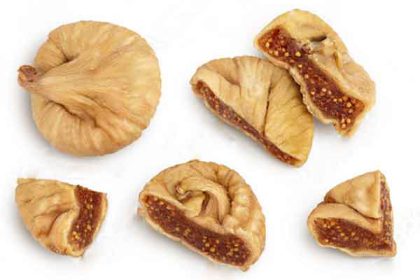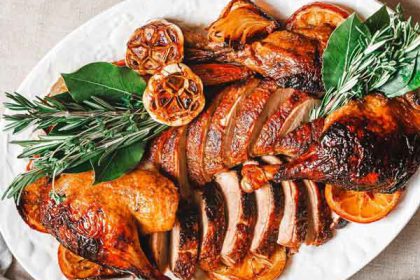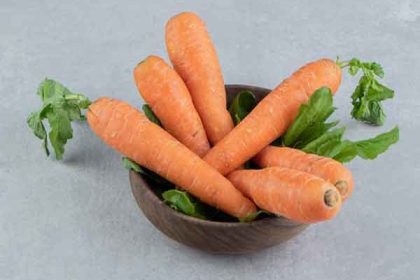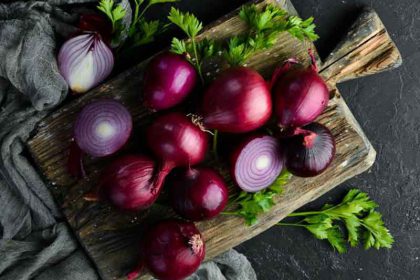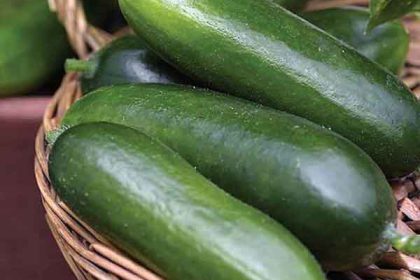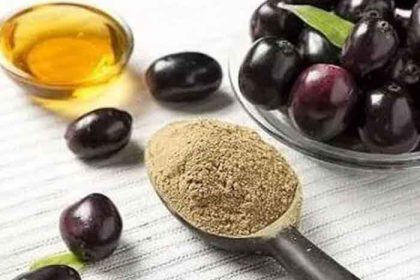Rabbit meat benefits for cancer and human and heart
Rabbit meat
Rabbit meat benefits for cancer and human and heart on Nicholi site. We hope this article will be of interest to you.
Rabbit meat offers several benefits as part of a balanced diet, including being a lean source of protein, low in fat, and rich in nutrients like iron and zinc. It has a favorable amino acid profile and lower allergenic potential. Rabbit farming is considered more sustainable than traditional livestock. However, rabbit meat may be limited in availability and lower in certain nutrients. Some individuals may have allergies, and there are sustainability concerns. Certain cuts may have higher cholesterol levels, and taste preferences can vary. Eating only rabbit meat can lead to nutrient deficiencies. Safety considerations include source, freshness, appearance, handling, cooking, and local regulations. Risks include foodborne illnesses, allergies, game meat considerations, and cholesterol content. Rabbit meat does not increase the risk of cancer. It can be suitable for heart patients due to its lean protein and lower cholesterol. However, a balanced diet and lifestyle are important. Individual concerns should be addressed with healthcare professionals or dietitians.
Rabbit meat benefits
Rabbit meat offers several potential benefits as part of a balanced diet:
Lean protein: Rabbit meat is a good source of lean protein. Protein is essential for various bodily functions, including building and repairing tissues, supporting muscle growth, and maintaining a healthy immune system.
Low in fat: Rabbit meat is generally low in fat, particularly saturated fat. Consuming lean meats like a rabbit can help reduce the intake of unhealthy fats that may contribute to weight gain, heart disease, and other health issues.
Nutrient-rich: Rabbit meat contains important nutrients such as iron, zinc, phosphorus, and B vitamins (including vitamin B12). These nutrients are essential for proper metabolism, red blood cell production, nerve function, and overall well-being.
High-quality amino acids: Rabbit meat is known to have a favorable amino acid profile. Amino acids are the building blocks of proteins and are important for the body’s growth, repair, and maintenance.
Low allergenic potential: Compared to other meats like beef or pork, rabbit meat has a lower allergenic potential. This makes it a potentially suitable protein option for individuals with specific food allergies or sensitivities.
Sustainable protein source: Rabbit farming is often considered a more sustainable and environmentally friendly form of meat production compared to traditional livestock. Rabbits require less land, water, and feed compared to larger animals, contributing to a smaller ecological footprint.
Rabbit meat disadvantages
While rabbit meat can be a part of a healthy diet, there are a few potential disadvantages or considerations to keep in mind:
Limited availability: In some regions, rabbit meat may not be as widely available compared to other meats. It may be less commonly consumed or less accessible, depending on cultural preferences or local availability.
Nutritional profile: Rabbit meat is generally considered lean, but it is relatively low in certain nutrients compared to other meats. For example, it is lower in fat, iron, and vitamin B12 compared to red meat or poultry. If rabbit meat is a significant part of your diet, you may need to ensure you are obtaining these nutrients from other sources to prevent deficiencies.
Environmental allergies: Some individuals may be allergic to rabbit meat, experiencing allergic reactions upon consumption. If you have a known allergy to rabbit meat or other related allergens, it’s best to avoid consuming it.
Sustainability concerns: There are debates regarding the sustainability of rabbit farming and its impact on the environment. It’s important to consider the farming practices, including housing conditions and feed sources when choosing rabbit meat.
High cholesterol for certain cuts: While rabbit meat is generally lean, some cuts, such as the liver or kidney, can have higher cholesterol levels. If you have specific dietary concerns related to cholesterol intake, it’s worth considering the cholesterol content of different cuts of rabbit meat.
Taste and culinary preference: The flavor of rabbit meat is distinctive and may not be enjoyed by everyone. Personal taste preferences and cultural considerations can affect the acceptance and enjoyment of rabbit meat in certain cuisines or regions.
Only eating rabbit will kill you
No, only eating rabbit meat will not necessarily kill you. Rabbit meat is a lean source of protein and can be part of a healthy diet. However, it’s important to note that relying solely on any single food source for your nutritional needs can lead to nutrient deficiencies over time.
Rabbit meat is relatively low in fat compared to other meats, but it is also lower in certain essential nutrients such as iron and vitamin B12 compared to red meat or poultry. Therefore, if you were to exclusively eat only rabbit meat without incorporating other sources of essential nutrients, it could potentially lead to deficiencies in certain vitamins and minerals.
A well-rounded and balanced diet should include a variety of foods from different food groups to ensure you are meeting your nutritional needs. It’s recommended to incorporate a variety of protein sources, including poultry, fish, legumes, dairy, and plant-based proteins, along with a range of fruits, vegetables, whole grains, and healthy fats.
How to tell if a rabbit is safe to eat?
When determining if a rabbit is safe to eat, there are several factors to consider. Some guidelines to help you assess the safety of rabbit meat:
Source: Ensure that the rabbit meat comes from a reliable and reputable source. If you are purchasing it, choose a trusted supplier that follows proper food safety practices.
Freshness: Fresh rabbit meat should have a pleasant odor, similar to other fresh meats. If it smells off or foul, it may indicate spoilage, and it’s best to avoid consuming it.
Appearance: Look for meat that is firm and moist. Avoid meat that appears discolored, slimy, or has signs of mold growth.
Proper handling and storage: Rabbit meat, like any other perishable meat, should be handled and stored properly. If the meat has been mishandled, stored at improper temperatures, or left out for too long, it may pose a higher risk of bacterial contamination. Ensure that the meat has been stored at refrigeration temperatures (below 40°F or 4°C) and follow recommended storage guidelines.
Cooking: Proper cooking is essential to ensure the safety of rabbit meat. Cooking at appropriate temperatures will help destroy any potentially harmful bacteria. The internal temperature of rabbit meat should reach at least 160°F (71°C) to ensure it is safe to eat.
Foodborne illnesses: Like any meat, rabbit meat can carry bacteria such as Salmonella or Campylobacter. These bacteria can cause foodborne illnesses if the meat is not handled or cooked properly. It’s important to practice good hygiene, such as washing hands thoroughly after handling raw meat, avoiding cross-contamination with other foods, and cooking the meat to the recommended temperature.
Local regulations: Be aware of any specific regulations or guidelines regarding the hunting, sale, or consumption of wild or farmed rabbits in your region. Different countries or jurisdictions may have specific requirements or restrictions.
Dangers of eating rabbit meat
Eating rabbit meat is generally considered safe when it is sourced from reputable suppliers and cooked properly. However, there are a few potential risks or dangers associated with consuming rabbit meat that are important to be aware of:
Foodborne illnesses: Like any raw meat, rabbit meat can be a potential source of bacteria, such as Salmonella or Campylobacter. These bacteria can cause foodborne illnesses if the meat is not handled, stored, or cooked properly. It’s important to follow proper food safety practices, including thorough cooking and avoiding cross-contamination with other foods.
Allergies: Some individuals may have allergies to rabbit meat or proteins found in rabbit meat. Allergic reactions can range from mild to severe and can include symptoms such as hives, difficulty breathing, or anaphylaxis. If you have known allergies to rabbit meat or other related allergens, it’s important to avoid consuming it.
Game meat considerations: Rabbit meat is considered game meat, and in certain regions, wild rabbits may be hunted for consumption. When consuming wild game, there are additional considerations such as the risk of exposure to environmental contaminants, parasites, or diseases. Proper hunting, handling, and cooking techniques are crucial to mitigate these risks.
Cholesterol content: While rabbit meat is generally lean, certain cuts, such as the liver or kidney, can have higher cholesterol levels. If you have specific dietary concerns related to cholesterol intake, it’s worth considering the cholesterol content of different cuts of rabbit meat.
Rabbit meat cancer
There is currently no scientific evidence to suggest that consuming rabbit meat increases the risk of developing cancer. Rabbit meat, like other meats, is a source of protein and other essential nutrients that are beneficial for the body. However, it’s worth noting that overall diet and lifestyle factors play a significant role in cancer risk.
It’s important to maintain a balanced diet that includes a variety of foods, including fruits, vegetables, whole grains, lean proteins, and healthy fats. Incorporating a diverse range of nutrient-rich foods and practicing moderation is generally recommended for overall health and reducing the risk of chronic diseases, including certain types of cancer.
If you have specific concerns about your diet, cancer risk, or any health-related questions, it is best to consult with a healthcare professional or a registered dietitian who can provide personalized advice based on your individual circumstances. They can help you make informed decisions about your diet and lifestyle choices.
Is rabbit meat good for heart patients?
Rabbit meat can be a suitable option for heart patients when consumed as part of a balanced diet. Here are a few reasons why rabbit meat can be considered beneficial for heart health:
Lean protein: Rabbit meat is generally low in fat and is considered a lean source of protein. Consuming lean proteins can be beneficial for heart health as it provides the necessary nutrients for muscle maintenance and repair without adding excessive saturated or trans fats that can increase the risk of heart disease.
Lower in cholesterol: Rabbit meat typically has lower cholesterol content compared to red meats like beef or pork. High cholesterol levels can contribute to the development of heart disease, and choosing lower-cholesterol protein sources can be beneficial for individuals with heart health concerns.
Nutrient composition: Rabbit meat is a good source of essential nutrients such as iron, zinc, and vitamin B12. These nutrients are important for various bodily functions and can contribute to overall heart health.
While rabbit meat can have benefits for heart health, it’s essential to consider other aspects of the diet and overall lifestyle. A heart-healthy diet should focus on a variety of nutrient-rich foods, including fruits, vegetables, whole grains, legumes, and healthy fats like nuts and seeds.
Additionally, cooking methods play a significant role in heart health. Avoiding excessive use of unhealthy fats, such as deep-frying, and opting for healthier cooking methods like grilling, baking, or steaming can help maintain the heart-healthy qualities of rabbit meat.
Is rabbit meat high in cholesterol?
Rabbit meat is generally considered to be low in cholesterol compared to some other types of meat. The cholesterol content of rabbit meat can vary depending on various factors such as the cut of meat and the rabbit’s diet.
On average, a 3-ounce (85 grams) serving of cooked rabbit meat contains about 94 milligrams of cholesterol. This amount is relatively low compared to meats like beef, pork, or lamb, which typically contain higher cholesterol levels. For example, a similar serving size of cooked beef can contain around 75-85 milligrams of cholesterol.
It’s worth noting that while rabbit meat is lower in cholesterol compared to some other meats, it’s still advisable for individuals with specific dietary concerns related to cholesterol to monitor their overall intake from all dietary sources. It’s recommended to maintain a balanced diet that includes a variety of foods, focusing on whole grains, fruits, vegetables, and lean protein sources, while also considering individual dietary needs and health conditions.
Is rabbit meat safe to eat?
Yes, rabbit meat is safe to eat when sourced from reputable suppliers and cooked properly. Rabbit meat is consumed by many people around the world and is considered a nutritious and flavorful protein source. However, it’s important to follow proper food safety practices when handling and preparing rabbit meat, just as you would with any other type of meat:
Source: Ensure that the rabbit meat comes from a reliable and reputable source. Choose suppliers that follow proper hygiene and food safety practices.
Freshness: Select rabbit meat that appears fresh and has a pleasant odor. Avoid meat that smells off or foul, as it may indicate spoilage.
Handling and storage: Properly handle and store rabbit meat to prevent bacterial contamination. Store it at refrigeration temperatures (below 40°F or 4°C) and follow recommended storage guidelines.
Cooking: Ensure that rabbit meat is cooked thoroughly to kill any potentially harmful bacteria. The internal temperature of cooked rabbit meat should reach at least 160°F (71°C) to ensure safety.
Cross-contamination: Prevent cross-contamination by using separate cutting boards, utensils, and surfaces for raw and cooked rabbit meat. Wash your hands thoroughly after handling raw meat.
Is rabbit meat tasty?
The taste of rabbit meat is subjective and can vary based on personal preferences and cultural backgrounds. However, many people find rabbit meat to be flavorful and enjoyable. Rabbit meat has a mild and slightly sweet flavor that is often described as delicate and similar to chicken or white meat.
One of the appealing aspects of rabbit meat is its tenderness. The meat is lean and has a fine texture, which can make it quite tender when cooked properly. It also has a subtle gamey quality that adds to its unique taste.
The taste of rabbit meat can be influenced by various factors, including the rabbit’s diet, age, and cooking methods. It is often seasoned with herbs, spices, and other ingredients to enhance its flavor.
Ultimately, whether rabbit meat is considered tasty or not is a matter of personal preference. Some people enjoy its distinct flavor and tenderness, while others may have different preferences. If you are curious about trying rabbit meat, it’s best to cook it using a recipe that appeals to your taste preferences and explore it firsthand to determine if you find it tasty.
Is rabbit meat good for high blood pressure?
Rabbit meat can be a suitable option for individuals with high blood pressure, as it is generally considered a lean protein source. Including lean proteins in your diet is recommended for managing high blood pressure, as they provide essential nutrients without adding excessive saturated fats. A few reasons why rabbit meat can be beneficial for individuals with high blood pressure:
Low in fat: Rabbit meat is typically low in fat, especially saturated fat. Diets low in saturated fat are generally recommended for individuals with high blood pressure, as saturated fat intake has been linked to an increased risk of cardiovascular disease.
Rich in nutrients: Rabbit meat is a good source of essential nutrients, including protein, iron, zinc, and B vitamins. These nutrients are important for overall health and can contribute to a balanced diet that supports cardiovascular health.
Lower sodium content: Rabbit meat naturally has a lower sodium content compared to processed meats, which can be beneficial for individuals with high blood pressure. Excessive sodium intake is known to contribute to high blood pressure, so choosing lower-sodium options can help manage blood pressure levels.
Is rabbit meat safe to eat?
Yes, rabbit meat is generally safe to eat when it is sourced from reputable suppliers and prepared properly. Rabbit meat is consumed by many people around the world and is considered a nutritious and flavorful protein source. However, as with any meat, there are some considerations to keep in mind to ensure safety:
Source: Choose rabbit meat from reliable and reputable sources. This helps ensure that the meat has been handled and processed in sanitary conditions.
Freshness: Select rabbit meat that appears fresh and has a pleasant odor. Avoid meat that smells off or foul, as it may indicate spoilage.
Handling and storage: Properly handle and store rabbit meat to prevent bacterial contamination. Keep it refrigerated at temperatures below 40°F (4°C) and follow recommended storage guidelines.
Cooking: Ensure that rabbit meat is cooked thoroughly to kill any potentially harmful bacteria. Cooking to the recommended internal temperature (usually around 160°F or 71°C) helps ensure the safety of the meat.
Rabbit meat recipes
Certainly! Here are a few delicious rabbit meat recipes you can try:
Rabbit Stew:
Ingredients:
1 whole rabbit, cut into pieces
2 tablespoons olive oil
1 onion, diced
2 carrots, diced
2 celery stalks, diced
3 cloves of garlic, minced
1 cup mushrooms, sliced
2 cups chicken or vegetable broth
1 cup red wine (optional)
2 bay leaves
Salt and pepper to taste
Instructions:
In a large pot or Dutch oven, heat the olive oil over medium heat. Add the rabbit pieces and brown them on all sides.
Remove the rabbit from the pot and set it aside. In the same pot, add the onion, carrots, celery, and garlic. Cook until the vegetables are softened.
Add the mushrooms, broth, red wine (if using), bay leaves, salt, and pepper. Return the rabbit pieces to the pot.
Bring the mixture to a boil, then reduce the heat to low. Cover and simmer for about 1.5 to 2 hours, or until the rabbit is tender and cooked through.
Adjust the seasoning if needed and serve the rabbit stew hot with crusty bread or over mashed potatoes.
Grilled Rabbit Skewers:
Ingredients:
1 whole rabbit, cut into pieces
1/4 cup olive oil
2 cloves of garlic, minced
2 tablespoons fresh herbs (such as rosemary, thyme, or oregano), chopped
Juice of 1 lemon
Salt and pepper to taste
Instructions:
In a bowl, combine the olive oil, minced garlic, chopped herbs, lemon juice, salt, and pepper to make a marinade.
Place the rabbit pieces in a shallow dish and pour the marinade over them. Ensure all the pieces are coated evenly. Cover the dish and refrigerate for at least 2 hours, or overnight for better flavor.
Preheat the grill to medium-high heat.
Thread the marinated rabbit pieces onto skewers. If using wooden skewers, soak them in water for 30 minutes before grilling to prevent burning.
Grill the rabbit skewers for about 4-6 minutes per side, or until the meat is cooked through and slightly charred.
Remove from the grill and let the skewers rest for a few minutes before serving. Serve with your choice of side dishes and enjoy!
Rabbit Ragu with Pasta:
Ingredients:
1 whole rabbit, cut into pieces
2 tablespoons olive oil
1 onion, diced
2 carrots, diced
2 celery stalks, diced
3 cloves of garlic, minced
1 can (14 ounces) diced tomatoes
1 cup chicken or vegetable broth
1 cup red wine (optional)
2 tablespoons tomato paste
1 tablespoon fresh herbs (such as thyme or oregano), chopped
Salt and pepper to taste
Cooked pasta of your choice
Instructions:
In a large pot or Dutch oven, heat the olive oil over medium heat. Add the rabbit pieces and brown them on all sides.
Remove the rabbit from the pot and set it aside. In the same pot, add the onion, carrots, celery, and garlic. Cook until the vegetables are softened.
Return the rabbit pieces to the pot and add the diced tomatoes, broth, red wine (if using), tomato paste, fresh herbs, salt, and pepper.
Bring the mixture to a boil, then reduce the heat to low. Cover and simmer for about 2-3 hours, or until the rabbit is tender and easily shreds with a fork.
Remove the rabbit pieces from the pot and shred the meat using two forks. Return the shredded meat to the pot and simmer for an additional 15-20 minutes.
Serve the rabbit ragu over cooked pasta of your choice, garnished with fresh herbs and grated Parmesan cheese.
These recipes should give you a good starting point to enjoy rabbit meat in various flavorful ways. Remember to adjust the ingredients and cooking times to your liking and dietary preferences.
Is rabbit meat good for diabetics?
Rabbit meat can be a suitable protein option for individuals with diabetes, as it is generally considered lean meat. Here are a few reasons why rabbit meat can be beneficial for individuals with diabetes:
Lean protein: Rabbit meat is low in fat and is generally considered a lean protein source. Including lean proteins in a diabetic diet can help promote satiety, stabilize blood sugar levels, and support overall health.
Nutrient profile: Rabbit meat is rich in essential nutrients, including protein, vitamins (such as B vitamins), and minerals (such as iron and zinc). These nutrients play a vital role in various bodily functions and can contribute to a balanced diet.
Lower cholesterol content: Rabbit meat is generally lower in cholesterol compared to some other meats, such as beef or pork. While dietary cholesterol has less impact on blood cholesterol levels compared to saturated and trans fats, managing cholesterol intake can still be important for individuals with diabetes.
Lower sodium content: Rabbit meat naturally has a lower sodium content compared to processed meats. Controlling sodium intake is beneficial for managing blood pressure and reducing the risk of cardiovascular complications, which can be of concern for individuals with diabetes.
Rabbit meat protein
Rabbit meat is a good source of protein. The exact protein content can vary depending on factors such as the cut of meat and the specific rabbit’s diet, age, and breed. On average, rabbit meat contains approximately 20-25 grams of protein per 100 grams of cooked meat.
Protein is an essential nutrient that plays a crucial role in various bodily functions, including building and repairing tissues, supporting muscle growth, and maintaining a healthy immune system. Including adequate protein in your diet is important for overall health and well-being.
Rabbit meat is often considered a lean protein source because it is generally lower in fat compared to meats like beef or pork. This can be beneficial for individuals looking to manage their calorie intake or maintain a healthy weight.
However, it’s important to note that the protein content of rabbit meat should be considered as part of a well-rounded diet that includes other nutrient-rich foods such as fruits, vegetables, whole grains, and other sources of protein. Balancing macronutrients and consuming a variety of foods is key to meeting your nutritional needs.
Rabbit meat vs chicken meat
Rabbit meat and chicken meat have some similarities and differences when it comes to their nutritional composition, taste, and culinary uses. Here’s a comparison:
Nutritional Composition:
Protein: Both rabbit meat and chicken meat are good sources of lean protein.
Fat: Rabbit meat tends to be lower in fat compared to chicken, particularly in terms of saturated fat. However, the fat content can vary depending on the specific cuts and cooking methods.
Cholesterol: Rabbit meat generally contains less cholesterol compared to chicken, making it a potentially favorable option for individuals concerned about their cholesterol intake.
Vitamins and Minerals: Both types of meat provide essential vitamins and minerals, including B vitamins, iron, and zinc, although the exact amounts can vary.
Taste and Texture:
Rabbit meat: Rabbit meat has a delicate and slightly sweet flavor. It is often described as having a texture similar to chicken or white meat but with a subtle gamey quality. The taste of rabbit meat can be influenced by factors such as the rabbit’s diet and age.
Chicken meat: Chicken meat has a mild flavor and a versatile taste that lends itself well to various seasoning and cooking methods. It has a tender texture and is commonly enjoyed in a wide range of culinary dishes.
Culinary Uses:
Rabbit meat: Rabbit meat is commonly used in stews, braised dishes, and roasted preparations. It can also be used in recipes that call for chicken, such as stir-fries or kebabs.
Chicken meat: Chicken is one of the most widely consumed meats globally and can be used in a vast array of recipes, including grilled, baked, sautéed, or used in soups, curries, salads, and more.
Availability and Price:
Chicken meat is more readily available and generally less expensive compared to rabbit meat, which may be less common in some regions.
When choosing between rabbit meat and chicken meat, personal preference, dietary needs, and cultural factors can play a role. Both types of meat can be enjoyed as part of a balanced diet, providing valuable protein and nutrients. It’s important to consider the overall dietary pattern, cooking methods, and portion sizes to support your specific health and culinary goals.
What does rabbit taste like on Reddit?
The taste of rabbit meat is subjective and can vary from person to person. Here are some descriptions of rabbit meat taste shared by Reddit users:
“Rabbit tastes very similar to chicken but has a slightly gamier flavor. It’s a mild meat with a subtle earthy taste.”
“To me, rabbit tastes like a cross between chicken and pork. It has a tender texture and a slightly sweet flavor.”
“Rabbit meat has a unique taste that is hard to describe. It’s mild and delicate, with a hint of sweetness. It’s definitely different from chicken or beef.”
“I find rabbit meat to be lean and slightly gamey. It has a distinct flavor that sets it apart from other meats.”
“The taste of rabbit can vary depending on how it’s cooked. It can be mild and delicate, or if cooked longer, it can become richer and more intense.”
What is rabbit meat called?
Rabbit meat is simply referred to as “rabbit meat.” There is no specific alternate name or term commonly used to refer to rabbit meat. In culinary contexts, it may be specified by the cut or preparation method, such as rabbit stew, rabbit roast, or rabbit sausage. But when referring to the meat itself, it is commonly referred to as rabbit meat.
Is rabbit meat greasy?
No, rabbit meat is generally not considered greasy. In fact, rabbit meat is known for being lean and low in fat compared to other meats such as beef, pork, and lamb. The leanness of rabbit meat contributes to its reputation as a healthier protein option.
However, the specific fat content can vary depending on the cut of meat and how it is prepared. The presence of fat in rabbit meat can depend on factors such as the rabbit’s diet, age, and breed. While there is some fat in rabbit meat, it is typically minimal compared to other meats.
When cooked properly, rabbit meat can have a tender and moist texture without excessive greasiness. It is often described as lean and delicate. However, the greasiness or overall texture can also be influenced by the cooking method used. Overall, rabbit meat is considered a lean protein option and is favored by those looking for a low-fat meat alternative.
Is rabbit red meat?
No, rabbit meat is not classified as red meat. It is considered white meat. The terms “red meat” and “white meat” are typically used to differentiate between the meat of mammals based on their color and muscle fiber composition.
Red meat typically refers to meat from mammals such as beef, pork, and lamb, which have higher amounts of myoglobin in their muscles. Myoglobin is a protein that gives meat its red color. These meats are generally darker in color when raw and can turn reddish-brown when cooked.
In contrast, white meat usually refers to the meat of poultry, including chicken, turkey, and duck, which have lower myoglobin content. Rabbit meat falls into the white meat category because it has a lighter color and lower myoglobin levels compared to red meats. It is generally lighter in color when raw and turns a pale, whitish color when cooked. So, while rabbit meat is not classified as red meat, it is considered white meat along with poultry.

